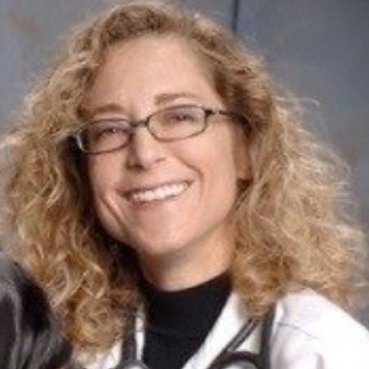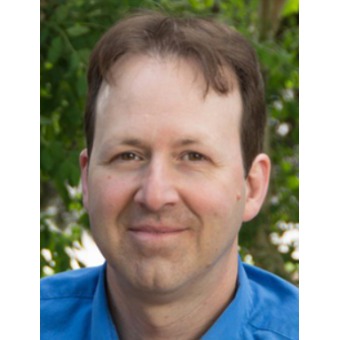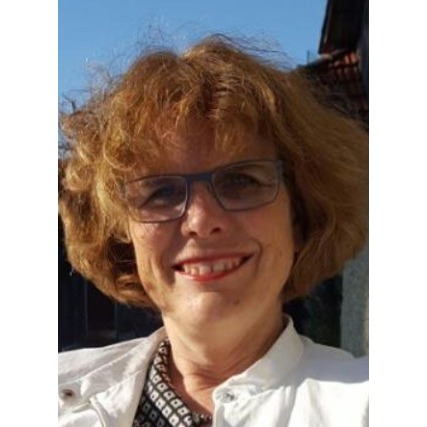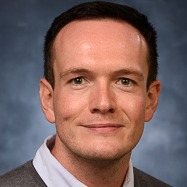Mast Cell Tumor Management
Species
Small Animal
Contact Hours
3 Hours
Early Booking Deadline
Thu, 01 January, 1970
Registration Deadline
Thu, 01 January, 1970
Language
English
Discipline
Internal Medicine – Endocrinology, Haematology, Infectious Diseases, Parasitology & Oncology
Pathology - Clinical & Gross
Surgery
Toxicology & Pharmacology
Industry Partners
Global

Veterinary Partners
Global


Recorded on: 14th July 2022
Panelists:
Cheryl London DVM, PhD, DACVIM- Cummings School of Vet. Medicine at Tufts University, USA
Bernard Séguin DVM, MS Diplomate ACVS - Colorado State University, USA
Barbara Kaser-Hotz Dr.med.vet. DACVR, DECVDI - AOI Animal Oncology and Imaging Center, Switzerland
Moderator:
James Elliott BVM&S, CertSAM, DECVIM-CA (Oncology), DACVR (RO), MRCVS - Southfields Veterinary Specialists, UK
CONTENT DESCRIPTION
Mast Cell Tumours (MCTs) are one of the most common malignant tumours dealt with in veterinary practice. They are the masters of disguise and exhibit a marked variation in biologic behaviour, from simple cure with surgery alone through to widespread metastasis. Multiple grading schemes, staging tests and prognostic factors have been described, and it can often be difficult for veterinarians to know which of these may be the most useful. The requirement for multi-modality therapy with a combination of surgery, radiation therapy and cytotoxic therapy is required for many patients and there are new drugs available to treat selected patients with MCTs.
Join us for this interactive panel discussion with a team of world-renowned multidisciplinary experts in the field of veterinary oncology and MCTs, where we will discuss the grading, staging, prognostic factors and various therapies available for the treatment of MCT patients. Many of these subjects are still very controversial, and so a myriad of opinions from various specialists will be really interesting. Attendees will have plenty of opportunity to ask questions and make comments.
Cheryl London, DVM, PhD, ACVIM (Oncology) is a Research Professor at Cummings School of Veterinary Medicine at Tufts University and the Molecular Oncology Research Institute at Tufts Medical Center. She has an active laboratory research program centered on comparative and translational oncology and is involved in the training of graduate students and postdoctoral fellows. She has recently joined the Clinical Trials Office at Cummings School to expand operations and enhance capacity and breadth of trials performed in client owned animals. Dr. London is also an Associate Faculty Professor at the Ohio State University College of Veterinary Medicine (OSU CVM) where she remains Director of the Clinical Trials Office at the CVM and Director of Translational Therapeutics at the Center for Clinical and Translational Sciences, OSU College of Medicine. Prior to her time at OSU, she was an Assistant Professor in the Department of Surgical and Radiological Sciences at the University of California, Davis.
Dr. London earned her DVM at Cummings School, completed her Residency in Medical Oncology at the University of Wisconsin-Madison and received her PhD in Immunology at Harvard University, where she was also a postdoctoral fellow in the Department of Pathology.
I have always wanted to be a veterinarian, from the day I learned there were doctors who treat animals. The fact that I never changed my mind, some might say, shows my determination, while others might characterize it as stubbornness. I believe it is a little of both. Being a veterinarian has been a great privilege. I have learned so much from my patients and their owners and I have been inspired by so many mentors.
Becoming a veterinarian has been, in many respects, a great journey. Born and raised in Montreal, Canada, I graduated veterinary school from the University of Montreal. Further training took me to the University of Illinois where I completed an internship in small animal medicine and surgery. If veterinary medicine was my vocation, I discovered that surgery was my passion, so I fulfilled my residency in small animal surgery at Washington State University. Throughout my education and training as a veterinarian, I had been simultaneously fascinated and intimidated by patients afflicted with cancer. Now, I decided to make oncology my mission. I was fortunate to be accepted for a fellowship in surgical oncology at Colorado State University’s Veterinary Teaching Hospital, the only fellowship of its kind at the time.
Following the fellowship, I chose to stay in academia for a couple of reasons. First, it allowed me to teach, which I tremendously enjoy (“Give a man a fish and he will eat for a day. Teach a man to fish and he will eat for a lifetime”). Second, and just as importantly, it allowed me to pursue research. That is a benefit of academia: the incredible opportunity to fix a problem rather than just complain about it. A clinician in academia gains a unique perspective through being able to treat patients, assess the shortcomings, and actively work to find solutions to produce better outcomes. As a veterinary clinician-scientist, I can satisfy both my passion to treat animals and my curiosity for finding better, safer treatment options for my patients.
I joined the faculty at the University of California at Davis, where I spent five years, followed by seven years at Oregon State University. During this time, I was able to meet and collaborate with many talented colleagues who helped to further shape my career. My interest in translational medicine and research, fostered during my fellowship at CSU, flourished at both institutions as I took advantage of the many opportunities for collaborative research.
I am thrilled to be at Colorado State University. The comprehensive team approach to treating cancer patients, of which I was a part as a fellow, is still a hallmark of the oncology group. My research at CSU is an evolution of my previous projects. Through collaborations with colleagues, we look for new solutions and ways to improve the outcome of our patients. Although my research touches several aspects of surgical oncology, my focus is mainly on sarcomas, particularly osteosarcoma and limb sparing surgery. Oncology continues to be a rapidly evolving field and new challenges will emerge, needing to be tackled. This is where my determination, but perhaps more my stubbornness, will help me.
When not at the hospital, I enjoy time with my wife, Lisa, and our two children. My family helps to keep me grounded and able to put my work in perspective. Together, we like to be active by skiing, sailing or enjoying other activities that allow us to appreciate the beauty of nature around us.
Barbara qualified from the University of Bern, Switzerland, in 1984 and after working in a large animal practice and the equine clinic of the University in Bern, went on to perform a residency in radiology at the University of Pennsylvania and Colorado State University. She became a Diplomate of the American College of Veterinary Radiology in 1992. Back in Switzerland she worked at the University of Zurich and the Paul Scherrer Institute, where she was involved in building up radiation oncology, both as a clinical subspecialty and as a research opportunity. In 1994 she became board certified in Radiation Oncology of the American College of Radiology.
Over the years at the University of Zürich, she went through all career steps from lecturer to full professor. She finally left University to become founder and owner of the animal oncology and imaging center (AOI Center). For more than 10 years she headed this specialty center, before taking the opportunity to work at SASH (Small animal specialist center) in Sydney. Since 2020 she is back in Switzerland and works as radiologist and consultant. Barbara has published numerous articles, presented at various international conferences, and helped to train many residents in radiology and radiation oncology.
James graduated from the University of Edinburgh and initially worked in small animal practice in England before completing a one year internship and residency in small animal oncology at the University of Liverpool. Here he underwent extensive training in the disciplines of medical oncology and radiotherapy. James holds the European College of Veterinary Internal Medicine (ECVIM) Diploma in Small Animal Oncology and is a recognised European Specialist in Small Animal Oncology and a Royal College of Veterinary Surgeons Recognised Specialist in Veterinary Oncology. He also holds the Royal College of Veterinary Surgeons Certificate in Small Animal Medicine.
Subsequent to his training, James became a lecturer in oncology at the University of Liverpool where, in addition to running busy clinics seeing cancer patients, he was also responsible for teaching undergraduate students, postgraduates undergoing oncology training, and members of the nursing team. In 2013, James joined a large referral centre where he helped to develop the oncology service. James is a member of the Veterinary Cancer Society, the European Society of Veterinary Oncology and is a regular speaker to vets on oncology topics and has published on various subjects in veterinary literature, including blood biomarkers in certain cancers, chemotherapy for canine lymphoma and canine oral mast cell tumours.
Having spent the last few years working in America in one of the most established veterinary radiation centres in the world, James is experienced in all aspects of modern veterinary radiation, clinical oncology and achieve high-level skills in treatment planning; particularly intensity-modulated radiation therapy, stereotactic radiosurgery and stereotactic body radiation therapy.
James was awarded the 2019 ACVR resident prize for his research into radiation therapy for plasma cell tumours
In his spare time James enjoys getting out and about in the countryside, music and travelling.
Veterinary Student
Online Panel Discussion
USD 40.00
Qualified Vet
Online Panel Discussion
USD 95.00
Intern/Resident (Requires proof of status)
Online Panel Discussion
USD 75.00
Vet Nurse/Vet Tech (Requires proof of status)
Online Panel Discussion
USD 75.00
If the options you are looking for are unavailable, please contact us.
No tax will be added unless you are a UK taxpayer
Choose currency at checkout


















